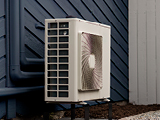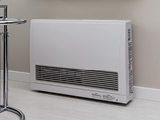Upgrade to natural gas
Given that more than 50 per cent of the energy used in an average B.C. home goes towards space heating, switching from oil and propane to natural gas can help lower associated emissions.
Right now, we’ve got rebates of up to $4,050 to make it even more cost-effective to upgrade from oil or propane to natural gas heating.
Rebates and cost savings
We’ve got rebates on natural gas space and water heating systems when you pre-qualify for the Connect to Gas program before March 31, 2026. Terms and conditions apply; offer subject to change. See table for details.
Responsive Table Layout
Benefits of upgrading to gas
There are many benefits to upgrading your home’s primary heating system.
Renewable Natural Gas
The existing gas system delivers conventional natural gas as well as Renewable Natural Gas (RNG).1 Once connected to the gas system, a portion of your natural gas use will be designated as RNG, known as designated RNG blend, allowing you to enjoy the benefits of the gas system while helping lower overall emissions.
We also continue to offer the voluntary RNG program so you can choose to designate up to 100 per cent of your natural gas use as RNG, inclusive of the designated blend.
Comfort, convenience and reliability
How about cosy fires at the flick of a switch and heat during power outages—not to mention all the possible outdoor upgrades like natural gas fire pits and patio and pool heaters? And if you don’t have ductwork, it’s no problem: you can install natural gas fireplaces and wall furnaces on almost any exterior wall, with no need for ducts or chimneys.
Upgrading to gas is easier than you think
Wondering about the cost of getting connected to natural gas? You might be surprised to learn it costs as little as $15. Installing a service line and meter typically takes less than a day, and we restore your property after. Learn more about getting natural gas installed.
1Renewable Natural Gas (also called RNG or biomethane) is produced in a different manner than conventional natural gas. It is derived from biogas, which is produced from decomposing organic waste from landfills, agricultural waste and wastewater
from treatment facilities. The biogas is captured and cleaned to create RNG. When RNG is added to North America’s natural gas system, it mixes with conventional natural gas. This means we’re unable to direct RNG to a specific customer.
But the more RNG is added to the gas system, the less conventional natural gas is needed, thereby reducing the use of fossil fuels and overall greenhouse gas emissions.

